Politics
Tinubu’s Political Travails
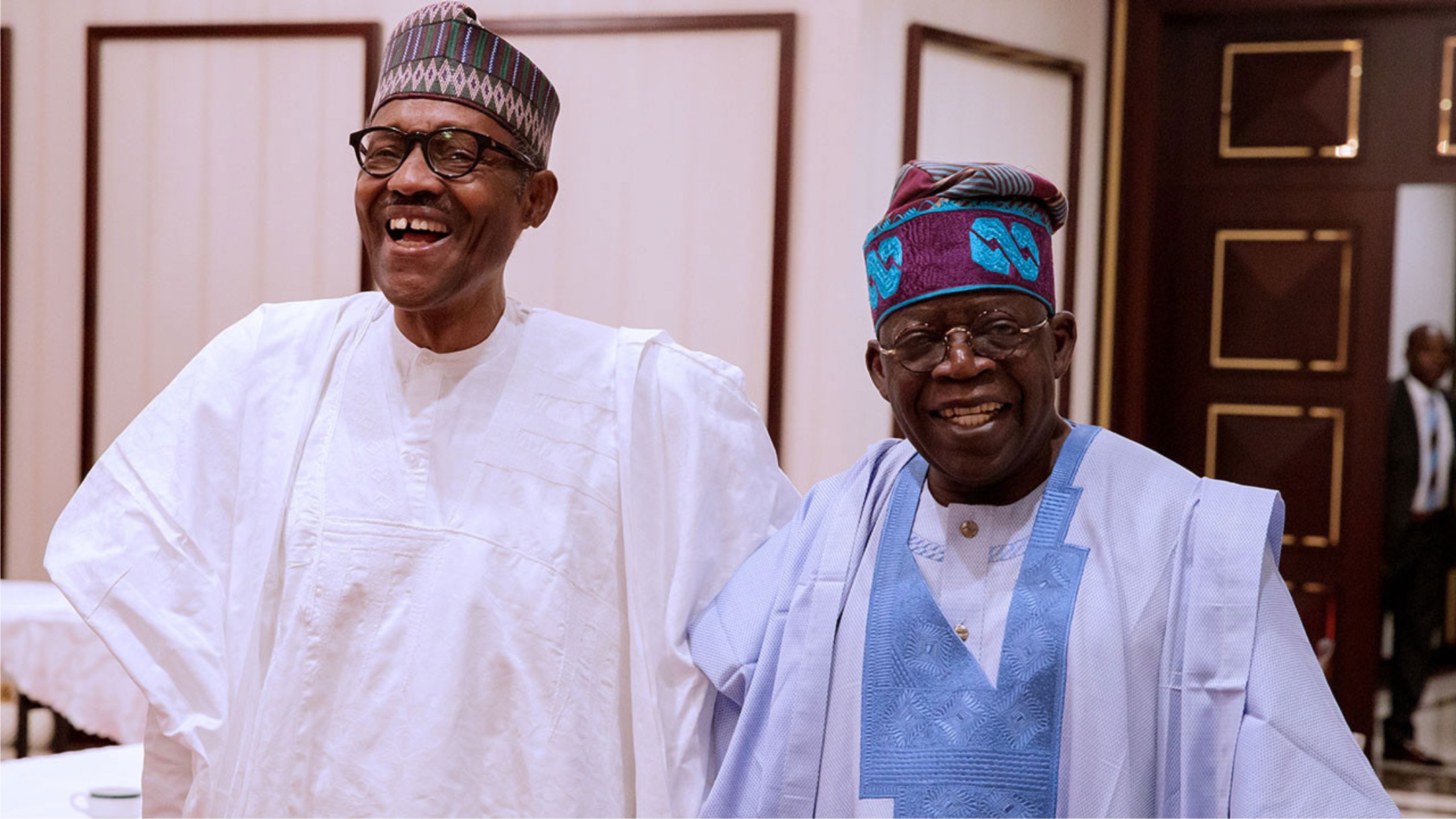
This is not the best of times for former Governor of Lagos State, Asiwaju Bola Tinubu who is battling to extricate himself from the accusation that he sponsored hoodlums to attack the #EndSARS protesters at Lekki Toll Gate. Of course, his image seems to be on the nosedive since after the incident.
When youths trooped to the streets about three weeks ago, protesting against police brutality which they codenamed #EndSARS, not too many gave them the chance to go as far as they went until when the protests had rapidly spread across the country and nearly paralysed the nation.
The Lekki Toll Gate, a significant route in Lagos was completely shut down by the protesters who occupied the axis for 24 hours every day. Similar thing was happening simultaneously at the various Government Houses in the South-West and by last weekend, movement and businesses were brought to a standstill by the youths.
At a point, a source said one of the former governors in South-West led a delegation to President Muhammadu Buhari alleging that Tinubu was the one behind the protests.
Shortly thereafter, a Northern group, Miyetti Allah, issued a threat to Tinubu alleging the national leader of the All Progressive Congress (APC) was the brain behind the protests, while, at the same time, some admirers of the protesting youths also pointed accusing finger at Tinubu alleging that he tried to engage hoodlums to thwart the peaceful protests.
The situation degenerated penultimate week when shooting at the prostesters was recorded at the Lekki Toll Gate, and in spontaneous actions, hoodlums, who must have been waiting to strike took advantage of the situation to take over the streets and attack all the businesses associated with Tinubu.
Before the mayhem, Tinubu himself had issued a statement to clear his position on the protests where he acknowledged the fact that the country had witnessed massive protests by youths in different cities, which were ignited by widespread disenchantment with the gross human rights abuses, including torture, extortion, harassment, intimidation, and even extra-judicial killings of Nigerians by members of the disbanded Special Anti-Robbery Squad (SARS).
He aligned with the protesters demanding fundamental police reforms. This, according to Tinubu, is in sync with national aspiration in our national anthem, “to build a nation where peace and justice shall reign.”
But he also pointed out that the President Muhammadu Buhari’s administration had acted with commendable dispatch by not only scrapping SARS but also accepting the five-point demand that triggered the protests, which according to him, shows a laudable sensitivity to the grievances of the youths.
He said it was only fair that the government must be given the chance to implement the reforms demanded by the protesters. Tinubu’s argument was that all the demands could not be done instantaneously by the waving of a magic wand. He had said, “If the government had not implemented promised reforms in the past, the swiftness with which it has responded to the demands of the protesters this time around shows that there is a positive change by the government, both in attitude and of a new sense of urgency.”
He strongly appealed to the protesters to sheathe their sword, saying they had made their point and government had also shown commitment to grant all the demands.
For Tinubu to have now become the central figure in the crisis and being accused from both ends is a puzzle that must be unraveled.
Two days after the protest ended with soldiers allegedly shooting at protesters, at the Lekki Toll Gate, Tinubu in a media interview denied sponsoring anybody to attack or shoot at protesters. In the video making rounds on social media Tinubu praised himself as “the Jagaban of Lagos”. Since the end of his tenure as governor in 2007, Tinubu has played key roles in the emergence of three other governors that have come behind him. However, the recent governorship election in Edo State and the loss by his party painted Tinubu as a man losing ground. Before the election in Edo, Tinubu had appeared on air and openly canvassed votes for his party, while castigating the incumbent governor, Godwin Obaseki for not swearing in APC legislators in the Assembly. He described Obaseki’s action as unconstitutional and called for his rejection at the polls. With all the political war chest Tinubu mobilised to Edo, his party was trounced by the Peoples Democratic Party (PDP). This not only painted Tinubu as losing popularity, but the PDP victory made a political statement that the West was losing its traditional grip on Mid-West State, which Edo symbolised.
Until Adams Oshiomhole came to power in 2008, Edo State had been a PDP enclave. Oshiomhole’s victory was attributed to his alliance with the West, especially Tinubu’s Action Congress of Nigeria (ACN). With the stranglehold of the West broken on former Mid-West in the last Edo elections, it’s believed that Tinubu’s influence has whittled down.
Pundits are waiting to see how the scenario pans out ultimately from now till 2023, when Nigeria conducts another general election. In a fashion typical of Yoruba hew-and-cut brand of politics, the intrigues surrounding the former governor of Lagos State’s exploits in politics reached a crescendo last Tuesday, when an angry mob set ablaze businesses and investments that were allegedly linked to him.
While some analysts were of the view that his (Tinubu’s) ambition to contest the 2023 presidency was the reason why his political rivals master-minded the plot to wreck him financially, others hold that the arsonists attacked TVC, The Nation Newspaper, Oriental Hotels and other establishments to demonise him before the electorate.
Apart from his dominance of Lagos politics in spite of bitter oppositions within and outside his platform, Tinubu also joined forces with other politicians across the length and breadth of Nigeria to merge and form a mega party APC in 2014.
In 2013, the parties that made up APC were Action Congress of Nigeria (ACN), Congress for Progressives Change (CPC), All Nigeria Peoples Party (ANPP), a faction of All Progressives Grand Alliance (APGA) and some disgruntled members of PDP led by Chairman of the splinter group, Kawu Baraje.
In 2015, APC, at its presidential primary held in Lagos, allegedly at the instance of Tinubu, President Muhammadu Buhari emerged as the party presidential candidate with the support of the national leader.
The choice of Buhari’s mate also degenerated into subtle crisis within the party as Tinubu was said to have shown interest in running a joint ticket with Buhari, He was, however, given the privilege to appoint his choice candidate as Buhari’s running mate, which brought in the incumbent Vice President, Professor Yemi Osinbajo.
The politics that also surrounded the 2014 presidential primary of APC did not go down well with Atiku and other PDP members that joined the merger.
Baraje, who led splinter group in PDP to the APC and the likes of Saraki, Atiku and others were not comfortable with the kind of political power Tinubu wielded in the ruling party and at different point in time, majority of them returned to their former political platform, PDP.
His involvement in the 2016 governorship elections in Ondo State and the one of 2018 in Osun and Ekiti states also created misgivings between Tinubu and APC Governors.
Tinubu’s desire to ensure one of his cronies, James Faleke inherited the governorship ticket when the party’s candidate, Kogi State, Alhaji Abubaka Audu, slumped and passed on few hours before the announcement of the result of the 2015 gubernatorial poll in Kogi did not materialise as a result of intrigues within the APC.
Tinubu was also caught in the political intrigues of who should succeed the pioneer National Chairman, Chief John Odigie-Oyegun when the position became vacant in 2018.
Tinubu later backed former Governor of Edo State, Adams Oshiomhole to succeed Odigie-Oyegun. Some aggrieved members of the party later pointed accusing fingers at Tinubu that his plan was to use Oshiomhole to take over the machinery of the party.
As at the end of 2018, almost all the political beneficiaries of the national leader had separated camps with him. For instance, when President Buhari appointed Tinubu to lead the Reconciliation Committee to resolve all the crises in the party, the likes of former governor of Ogun State, Ibikunle Amosun, Governor Fayemi, erstwhile National Legal Adviser of the party, Muiz Banire, Governor Akeredolu among others had severed relationship with Tinubu.
While Amosun saw himself as the leader of the party in Ogun State and would therefore, not succumb to the dictates of any Lagos godfather, Governors Akeredolu and Fayemi allegedly had grouse with Tinubu over their governorship ambitions. Just like Banire felt that the national leader sacrificed him to bring in Babatunde Ogala
By the time the 2019 elections were concluded, APC had been factionalised into different camps, a development that subsequently led to the suspension and later removal of Oshiomhole.
No sooner Buhari was re-elected for second term in 2019 than preparations for 2023 election began in the APC. Political permutations became intense and Tinubu again surfaced in the midst of the controversy. Although, he has not officially declared interest to run in 2023, some stakeholders, however, see him as a threat to be dealt with as soon as possible before it is too late.
Perhaps, that must have been part of the reasons some governors on the platform of the party insisted on the exit of Oshiomhole as national chairman.
After Oshiomhole’s exit, Tinubu was accused of plotting to impose another stooge in the person of former Oyo State governor, Abiola Ajimobi. This development caused disaffection between Tinubu and Ekiti State APC, which argued that the position of deputy national chairman earlier occupied by Otunba Niyi Adebayo, current Minister of Trade and Investment, should not be ceded to Oyo State’s Ajimobi. Ekiti APC refused to budge as it threatened court action if Gbenga Aluko was sidetracked to favour Ajimobi. The aftermath was the emergence of the Mai Mala Buni caretaker committee.
Politics
Why I Won’t Help Tinubu’s Govt Overcome Economic Challenges – Sanusi
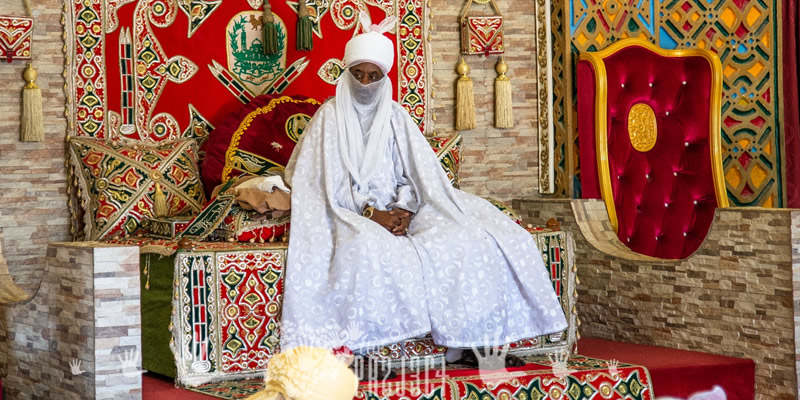
The 16th Emir of Kano, Muhammad Sanusi II, says he would not help President Bola Tinubu’s administration to correct the administration’s policies affecting the citizens.
Emir Sanusi spoke on Wednesday in Lagos as the chairman of the 21st Anniversary of Fawehinmiism (Gani Fawehinmi Annual Lecture 2025).
The emir stated that while there were “a few points” he could offer to explain the trajectory the administration had taken and how such decisions were predictable, he chose not to do so because “they don’t behave like friends.”
He said explaining the government’s policies would help the government, but he did not intend to assist them due to the way they had treated him.
“I can give a few points that are contrary, that explain perhaps what we’re going through and how it was totally predictable, most of it, and maybe avoidable. But I am not going to do that.
“I have chosen not to speak about the economy or the reforms or to even explain anything because if I explain, it would help this government, but I don’t want to help this government,” the emir said while addressing some of the points made by speakers about the economy.
He added: “You know they’re my friends, but if they don’t behave like friends, I don’t behave like a friend. So I watch them being stooges. And they don’t even have people with credibility who can come and explain what they are doing. I am not going to help. I started out helping, but I am not going to help. I am not going to discuss it. Let them come and explain to Nigerians why the policies that are being pursued are being pursued.
“Meanwhile, I’m watching a very nice movie with popcorn in my hands. But I will say one thing: What we are going through today is, at least in part, not totally, but at least in part, a necessary consequence of decades of irresponsible economic management.
“People were told decades ago that if you continue along this path, this is where you’re going to end up, and they refused to open their eyes. Now, is everything being done today correct? No.”
Emir Sanusi, who was deposed as the 14th Emir of Kano in 2020 by then-Governor Abdullahi Umar Ganduje, the current national chairman of the ruling All Progressives Congress (APC), was reinstated as the 16th Emir of Kano in 2024 by the New Nigeria People’s Party-led Kano State Government.
His emirship has faced ongoing challenges from forces believed to be backed by the federal government, including federal officials’ continued recognition of his predecessor, Emir Aminu Ado Bayero.
Last month, the police barricaded his palace, with the state government accusing the federal government of orchestrating the action to stir unrest in the peaceful state.
Politics
Reps Loses Deputy Chief Whip
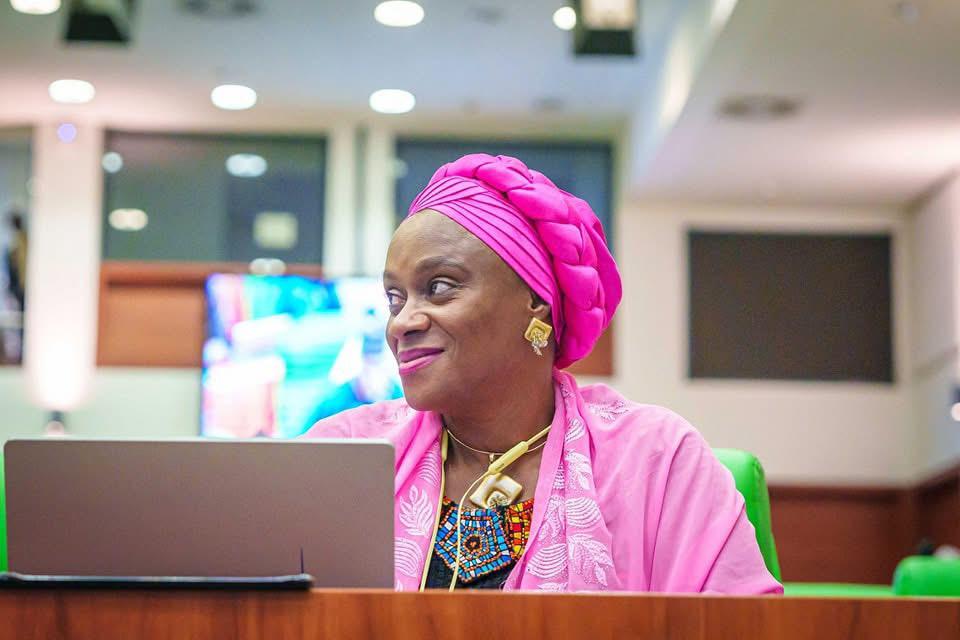
The Deputy Chief Whip of the House of Representatives, Rt Hon. Oriyomi Onanuga, is dead.
Also known as Ijaya, Rt Hon. Onanuga, who was the member representing Ikenne/Sagamu/Remo North Federal Constituency, is said to have died following a brief illness.
This was confirmed in a tweet on the official X (formerly Twitter) account of the House of Representatives, on Wednesday night.
Rt Hon Onanuga, who was born in Hammersmith, London, to Nigerian parents on December 2, 1965, was a politician and entrepreneur. She held the position of Deputy Chief Whip in the Nigerian House of Representatives since 2023.
She contested and won a seat in the House of Representatives under the platform of the All Progressives Congress (APC) in 2019. She also served as the Chairperson of the House Committee on Women Affairs and Social Development.
Politics
Aiyedatiwa Dissolves Cabinet, Retains Finance Commissioner, Attorney-General
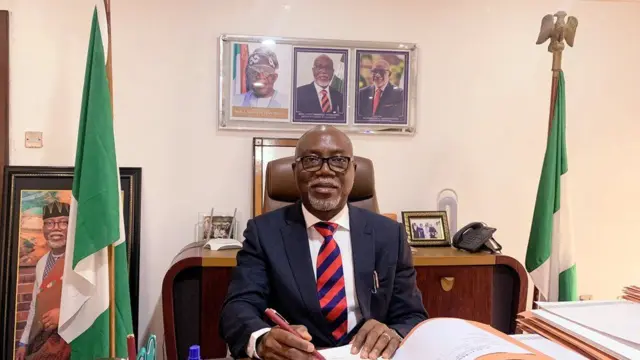
Gov. Aiyedatiwa, however, exempted two members of the cabinet from the dissolution due to the critical nature of their duties.
The two commissioners exempted include the Attorney General and Commissioner for Justice, Dr Kayode Ajulo, SAN, and the Commissioner for Finance, Mrs. Omowunmi Isaac.
This was contained in a statement issued by the governor’s Chief Press Secretary, Ebenezer Adeniyan, in Akure, the Ondo State capital.
Mr Adeniyan said in the statement that “All the affected cabinet members are to hand over all government properties in their care to the accounting officers of their respective ministries.
Gov. Aiyedatiwa thanked the executive council members “for their service and contributions to the development of Ondo State under his administration and wished them well in their future endeavours”.
-
Rivers1 day ago
100 Days: Omuma Council Boss Lists Achievements
-
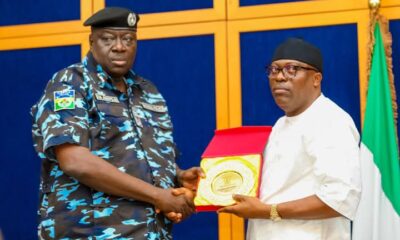
 Featured1 day ago
Featured1 day agoTinubu Pledges Peace, Justice, Development in Ogoniland….Fubara Lauds President on Peace Talks
-

 Featured1 day ago
Featured1 day agoFG, States, Local Govts Share N1.42trn In January
-
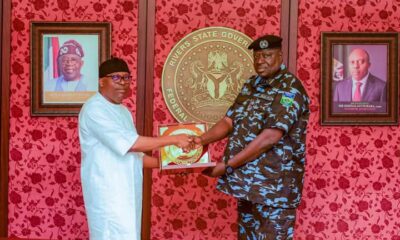
 News1 day ago
News1 day agoDon’t Attend Nocturnal Meetings To Declare War On Rivers, Fubara Tells New CP
-
News1 day ago
AUDA-NEPAD Nigeria To Electrify 1m Rural Communities In 2025
-

 online games21 hours ago
online games21 hours agoHow to Get Bonus at 1xBet Website?
-
Niger Delta1 day ago
You Have Our Ears, Fubara Assures Civil Servants
-
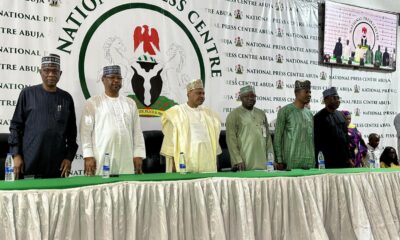
 News1 day ago
News1 day agoNigeria Ready To Host UNESCO Media, Information Literacy Institute – Minister

